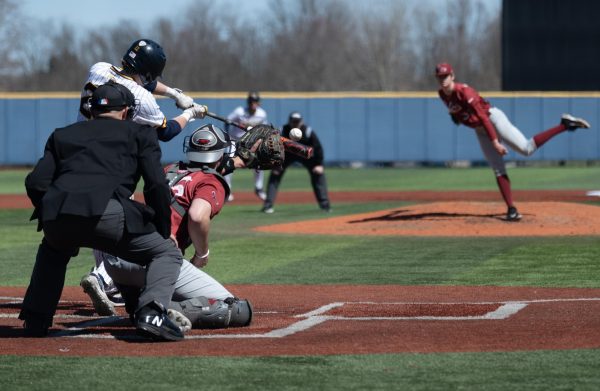Meningitis vaccine: more options, more affordable
May 5, 2005
A new vaccine is available through the DeWeese Health Center for meningococcal meningitis, a disease especially risky for college students living in residence halls.
Menactra, the name of the vaccine, was approved by the Food and Drug Administration in January and may last twice as long as the previous vaccine.
The vaccine is proven to be good for at least five to eight years, but evidence suggests it may be good for longer, Chief University Physician Dr. Raymond Leone said. Menomune, the other meningitis vaccination, lasts five years. Leone said the new vaccine is also “boostable,” meaning a booster shot will continue the strength of the vaccine.
Currently the vaccination can be ordered through the health center, and it can arrive within two business days, Leone said. In the fall, it will be in stock at the health center.
The risk for meningococcal meningitis spikes at ages 12 to 14, and peaks in the college years, Leone said. After ages 20 to 21, the risk for the disease decreases.
Meningitis infects the fluid around the brain and spinal cord. The disease kills 10 to 15 percent of those who contract it, according to the Centers for Disease Control and Prevention Web site.
The new meningitis vaccination costs between $90 and $95 at the health center. Since the new vaccine hit the market, the price of the old vaccine is now $65 at the health center, Leone said.
But Leone said not to rule out Menomune just because there’s a new vaccine on the market. For those who didn’t contract meningitis prior to college, Leone recommends getting Menomune instead of Menactra.
“We’d rather offer people a value,” Leone said. “If it was my kids in college, I’d give them the Menomune. However, my kids going into junior high, I’d give them Menactra.”
Leone explained that since the risk for meningitis drops after age 20, and Menomune is good for five years, getting vaccinated with Menomune while in college should be sufficient.
Both the Menactra and Menomune vaccines can prevent four types of meningococcal disease, including two of the three kinds prevalent in the United States, according to the CDC Web site.
Contact medicine reporter Kim Thompson at [email protected].























